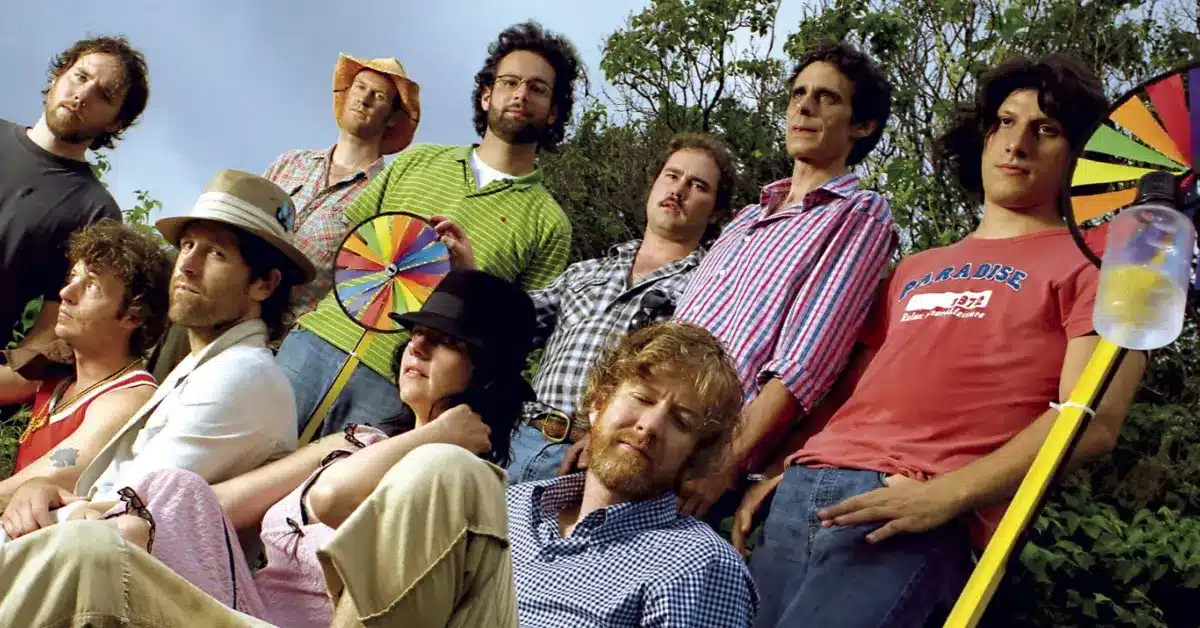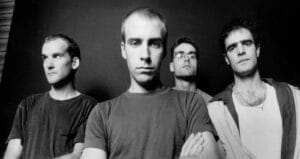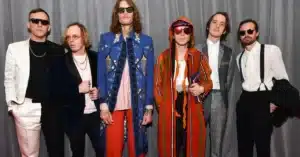Broken Social Scene: The Beautiful Chaos of Indie Rock Collectivism
Broken Social Scene is a Canadian indie rock collective formed in Toronto in 1999, known for their orchestral sound, layered instrumentation, and communal spirit. More than a band, they are a musical movement, often featuring up to 15+ members, including some of the most influential figures in Canadian indie music. Their music blends post-rock, baroque pop, ambient textures, and anthemic rock—a sonic celebration of collaboration, emotional honesty, and messy human connection.
With lush arrangements, sprawling songs, and an ever-rotating cast of contributors, Broken Social Scene became a cornerstone of 2000s indie, shaping the sound of the era alongside acts like Arcade Fire, The National, and Sufjan Stevens.
Broken Social Scene. Formation and Core Members
- Formed: 1999, Toronto, Ontario, Canada
- Founders:
- Kevin Drew – Vocals, guitar, songwriting
- Brendan Canning – Bass, guitar, vocals, songwriting
Though Drew and Canning are the anchors, the collective has featured many notable members and collaborators, including:
- Feist
- Emily Haines (of Metric)
- Amy Millan and Torquil Campbell (of Stars)
- Jason Collett
- Andrew Whiteman (of Apostle of Hustle)
- Justin Peroff – Drums
- Charles Spearin (also of Do Make Say Think)
The group’s lineup varies wildly between albums and shows, reinforcing their ethos of creative openness and artistic family.

Broken Social Scene. Musical Style
Broken Social Scene’s sound is:
- Expansive and cinematic, often with multiple guitars, horns, strings, and vocalists
- Rooted in post-rock atmospherics, but with pop melodies and rock dynamics
- Emotionally rich—ranging from euphoric and bombastic to delicate and ambient
- Defined by a sense of controlled chaos, where imperfections become part of the beauty
- Lyrics often impressionistic, intimate, and vulnerable
Their albums feel like collages of ideas and emotions, where everything bleeds together and nothing is too polished.
Broken Social Scene. Key Albums
Feel Good Lost (2001)
Their ambient debut, largely instrumental and post-rock influenced. A quieter, more experimental beginning.
Highlights:
- “Passport Radio”
- “Cranley’s Gonna Make It”
You Forgot It in People (2002)
Their breakthrough and one of the most influential indie rock albums of the 2000s. A chaotic, gorgeous mix of ambition and sincerity.
Highlights:
- “Anthems for a Seventeen-Year-Old Girl” – Haunting and iconic, featuring Emily Haines
- “Cause = Time” – Groovy and cryptic
- “Almost Crimes” – Urgent and romantic
- “Lover’s Spit” – Tender and transcendent
Broken Social Scene (2005)
A self-titled follow-up that pushed their maximalism even further. Dense, messy, and breathtaking in its emotional scope.
Highlights:
- “7/4 (Shoreline)” – A fan favorite, featuring Feist
- “Ibi Dreams of Pavement (A Better Day)”
- “Superconnected”
- “Major Label Debut”
Forgiveness Rock Record (2010)
Produced by John McEntire (of Tortoise), this album feels more refined and focused, with elements of krautrock and synth-pop.
Highlights:
- “World Sick” – A sweeping opener
- “All to All”
- “Forced to Love”
- “Sweetest Kill”
Hug of Thunder (2017)
A reunion of sorts, featuring contributions from Feist, Haines, Millan, and others. A warm, rich return to form.
Highlights:
- “Halfway Home”
- “Skyline”
- “Stay Happy”
- “Hug of Thunder” (feat. Feist)
Old Dead Young: B-Sides & Rarities (2022)
A deep dive into the band’s archives. A fascinating look at their musical evolution, filled with gems and alternate takes.
Broken Social Scene. Live Performances
- Live shows are sprawling and communal, often featuring 10+ members on stage
- Their concerts feel like celebrations, where instruments and voices swirl into a collective emotional release
- Known for fluid setlists, spontaneous moments, and extended jams
Broken Social Scene. Influence and Legacy
- Central to the rise of Canadian indie music, alongside Arcade Fire, Feist, and The New Pornographers
- Helped launch or boost the careers of Feist, Metric, Stars, Apostle of Hustle, and more
- You Forgot It in People is considered a genre-defining album, influencing bands like Local Natives, Grizzly Bear, The Antlers, and The National
- Embody the idea that music can be a collective, inclusive experience, not just an individual pursuit
Where to Start
| Album | Year | Best For |
|---|---|---|
| You Forgot It in People | 2002 | Essential, eclectic, and emotionally powerful |
| Broken Social Scene | 2005 | Ambitious and emotionally chaotic |
| Forgiveness Rock Record | 2010 | More polished and structured |
| Hug of Thunder | 2017 | Warm and melodic reunion energy |
| Feel Good Lost | 2001 | Instrumental post-rock roots |
Final Thoughts
Broken Social Scene is not just a band—it’s a musical ecosystem, a living, breathing expression of creativity, community, and vulnerability. Their songs capture the full range of human experience—joy, heartbreak, confusion, connection—in messy, beautiful layers of sound.
For those who seek depth, catharsis, and sonic warmth in their music, Broken Social Scene is a reminder that being overwhelmed by emotion can be a beautiful thing.




